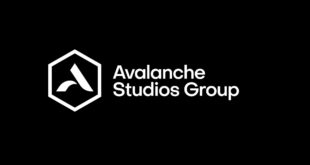Most famous for the Just Cause games, Avalanche is currently hard at work on a new game based on the film series Mad Max.
Develop recently spoke to the studio’s co-founder and chief creative officer Christofer Sundberg about working on the classic IP, set to be released in 2014, and how the team’s development culture has adapted to meet the demands of a new kind of project and shifting industry trends.
How has tackling Mad Max seen Avalanche change in terms of the creative culture at the studio?
Well, we’re now in our tenth year. We’ve taken quite a lot of time over each game we have developed, and it all started with Just Cause, which was our first game, that released in 2006. That was where we got to make all of our mistakes; your first game is your first game, you know?
But that’s also where we got our creative philosophy from, in terms of how we approach games development. Just Cause was a game based on chaos, and that was a result of letting the development team experiment a lot with open world systems. There weren’t many ideas from our team we ever shot down, except the one about a rocket to the moon that we couldn’t go with. And the game became successful because we let the designers have a lot of freedom.
With Mad Max it’s been a new step in our creative development, because it’s our first really narrative-driven open world game. We’ve had to think more about more controlled open world experiences. In one way we still have the chaotic design mentality, and that really shines through when you see the demo. On the other hand we have this series of narrative missions where we convey these really dark and mature stories.
It’s been about balance; that hasn’t really changed the way we actually work as a studio, but it has changed the development mentality a little. We have to approach the development from two different angles, and that has required a new way of thinking at the studio.
The Just Cause games certainly had a lot of character, and it felt like maybe the character of the studio was coming through.
Oh, absolutely. That was exactly it.
But with Mad Max, the source material should arguably set the character of the game. Did you still manage to let the team be creatively free in that context?
It’s the first licence we’ve worked with, and obviously that introduces a set of rules. But for us it was very important from the very beginning that we had a publisher that allowed us a certain freedom. And Warner really wanted a developer that was specialist in a certain genre; in this case the open world. They wanted a studio that could bring experience of that genre to Mad Max, and they had seen our ideas, and wanted that. So we were very lucky to have a great collaboration with them.
So it has been a more controlled development experience, but we could still let our own craziness shine through. A game from Avalanche wouldn’t come out without exploding cars, crazy chases and a lot of fire. We are that studio, and approaching a game like Mad Max has been really interesting in that way. And it’s been really nice to take the team members with experience making the Just Cause games and give them the experience and the challenge of conveying a really strong story.
Obviously you’ve made open-world games with stories before, but as you say, this is a new challenge for Avalanche. How have you approached this new emphasis on narrative, without loosing the player freedom of an open world?
It’s really been about finding balance. We’ve had to think very hard about structuring our game to allow strong stories and player freedom. We don’t want to force the story on the player too much, but we don’t want them to forget the story, so we’ve had to think of ways of bringing the player back to the game. It is just about balance, and we’re not a developer that wants to control our players. We want to encourage exploration. We want our players to be their own gaming anarchists. We want players that go left when we say ‘go right’. We can play tricks of reverse psychology, that kind of thing.
Which could be a kind of player control, couldn’t it?
Of course. It’s hard to control our own anarchists.
Moving on to your technology philosophy, are you focused on proprietary tools, or external middleware?
Both really. We have our own engine, and that has been around with us since the very beginning. We call it the Avalanche Engine. I admit that isn’t the most creative name, but we concentrated on the engine rather than the name.
It’s obviously focused on open world and huge landscapes, so it matches the needs of our studio. But we recognise that we can’t specialise in every kind of tech, so we are always happy to use middleware when it is right, so for example we use Havok and many other middlewares.
But it remains worth investing team members in your own technology?
Absolutely. The engine is still quite unique in its field, so having that is very important. It’s really part of the reason we are making Mad Max. Our tools are something of a foundation for us securing that project. Open world games are what we do, so a specialised engine is important to that.
Looking beyond Avalanche for a moment, are you optimistic about the way the game development space is changing at the moment?
I am, yes. I think it’s a nice change at the moment, and I hope we’re finally at the end of a very long recession. Years like 2008 and 2009 were really tough across the industry, and then there was a small comeback. It keeps changing, and there is always so much new to understand, which is certainly good. There’s new funding models, Kickstarter, and the new consoles, for example.
So the studios that will remain successful are the ones that adapt to the changing landscape. And the way money is made in the industry is changing. Publishers were making money selling games in boxes and developers were making money on projects that might not be so successful today. That’s all changed, and free-to-play has made big changes too, but what I think is really interesting now is that everything is all coming together.
We have a free-to-play studio that is doing something new with a free-to-play game that has been live for four years, and we have a little mobile project, and then our big triple-A projects. What is so interesting today is that we can take the best parts of those experiences and potentially put them together into one package.
Does that mean you can see free-to-play and triple-A starting to become more of the same thing?
Absolutely. It depends on what the game is of course. But today developers have so many options, and that is so nice. And next-generation consoles have hardware specs we could only dream of a few years back. Then there’s ways to connect players that we’ve never seen before.
I really think it’s a time of opportunity, and it’s up to every developer and publisher to grab that opportunity. I’m super excited by it. I’m sure there will be more rough times ahead for the industry, but it is all learning for us.
Ten years after you founded Avalanche, does the available variety of doing triple-A, free-to-play and mobile projects help with creative motivation for the team?
Yes, it does. Absolutely. Obviously there are changes for the team as they think about those things. But changing is necessary to succeed. Look at what Gearbox has done with Borderlands, changing with the industry.
Thinking about making your game make money doesn’t have to override creativity. When you manage a creative team you should never ask your designers to think about making anything but a game they would be prepared to spend money on themselves. People like me and our studio’s business guys can think about the money. If our designers don’t believe in what they are making, the whole creative process would be impossible.

 MCV/DEVELOP News, events, research and jobs from the games industry
MCV/DEVELOP News, events, research and jobs from the games industry



